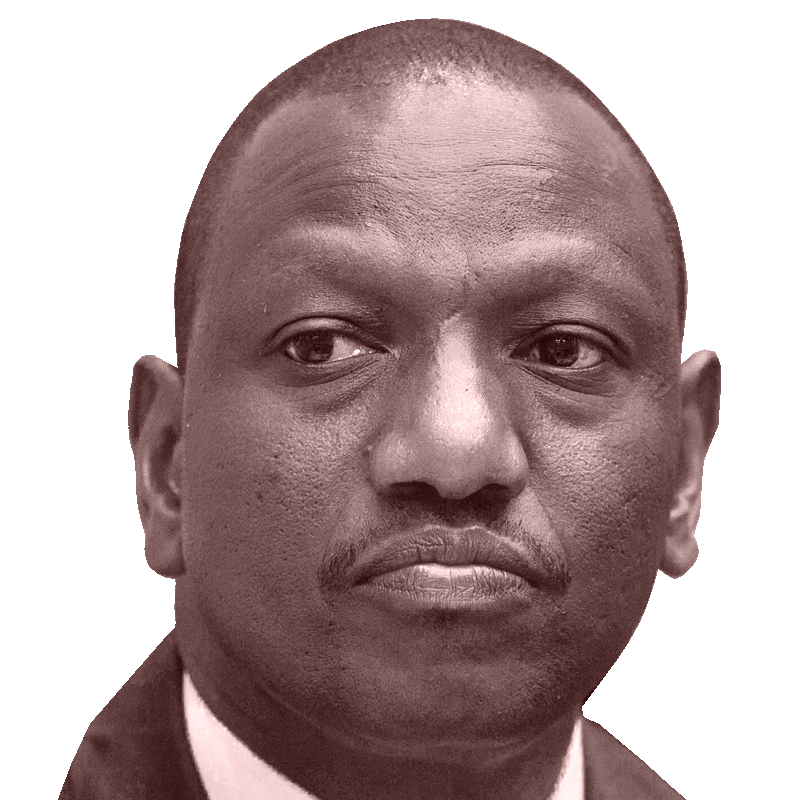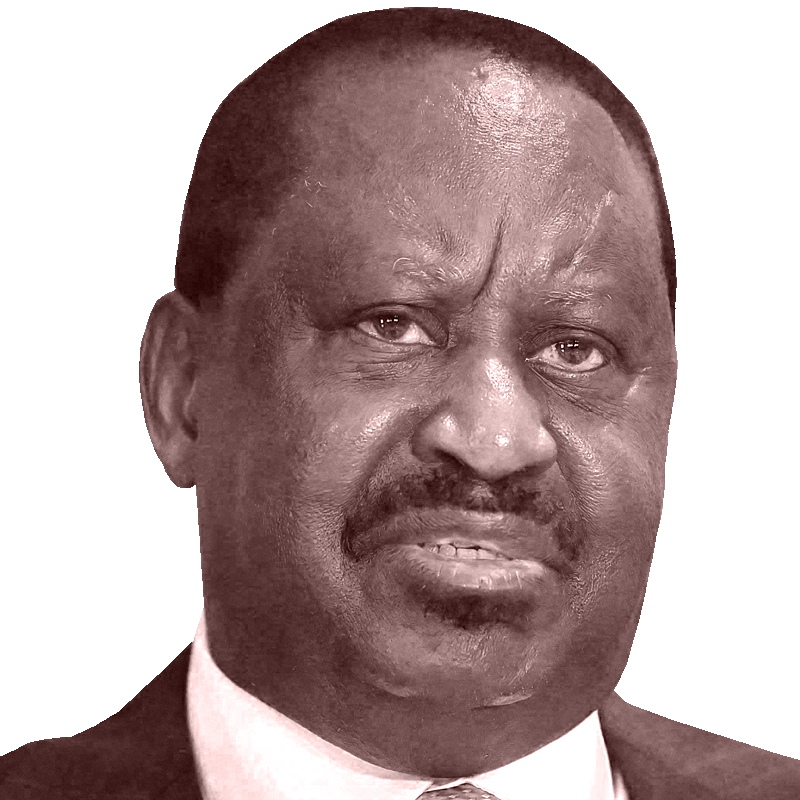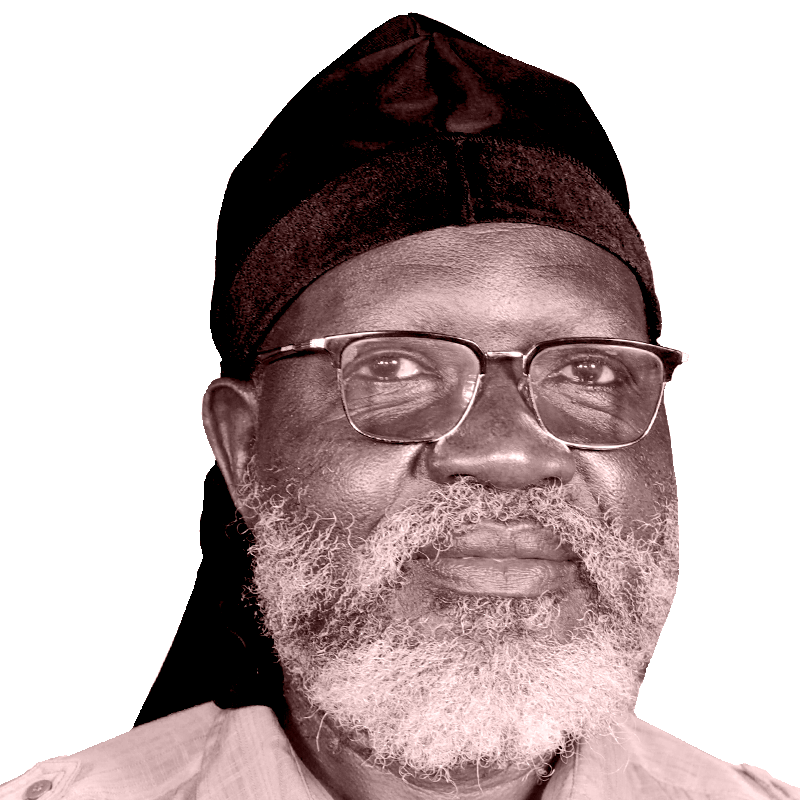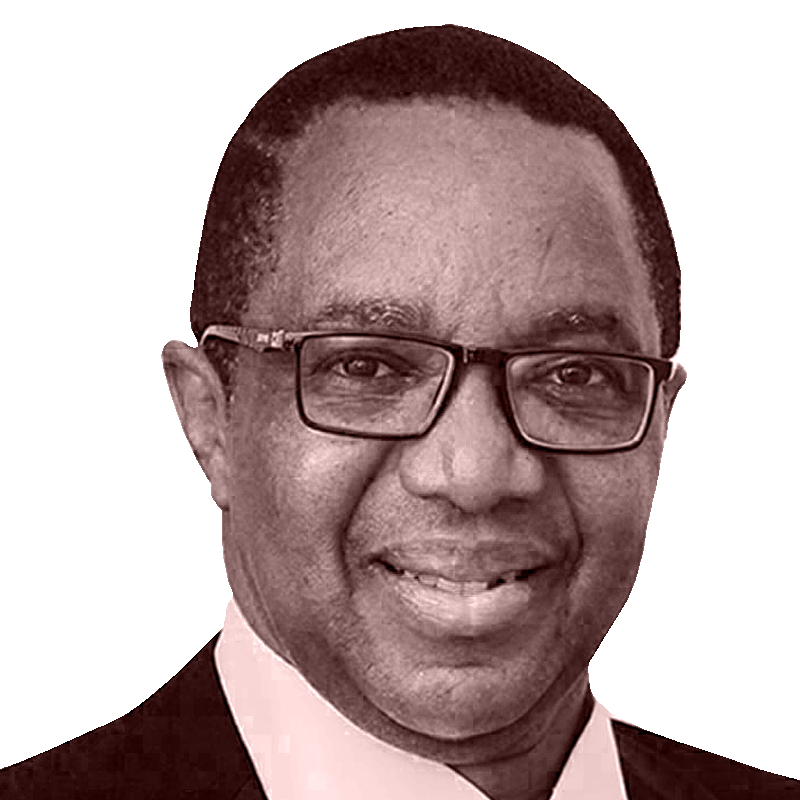Kenya elections 2022: Raila Odinga and William Ruto in tight presidential race
- Published
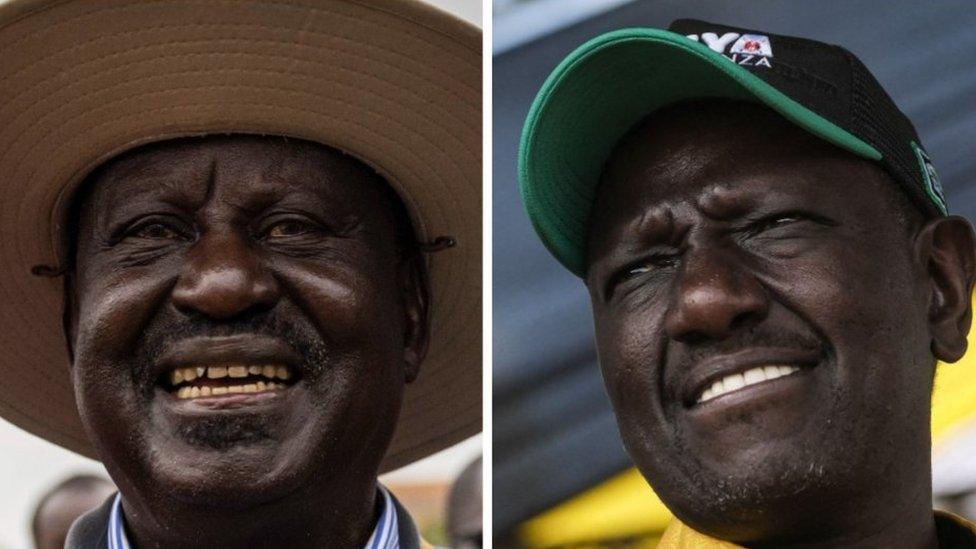
Former Prime Minister Raila Odinga (left) is just behind Deputy President William Ruto in the count
With almost half of the results from Kenya's presidential election now confirmed, the two main candidates are running neck and neck.
Deputy President William Ruto has taken a slight lead over ex-Prime Minister Raila Odinga - 51% against 48%.
The electoral commission head has admitted that announcing the result of Tuesday's election has been too slow.
The verification of results has been stopped several times after complaints by supporters of the main candidates.
On Saturday night, Mr Odinga's supporters entered a restricted area and accosted electoral officials, accusing them of tampering with the vote.
Mr Odinga's chief campaign manager was able to get to the lectern used by top electoral commission officials, where he criticised the result verification process.
"I want to announce to the nation that Bomas of Kenya is a scene of crime," said Saitabao Ole Kanchory, before the microphone was switched off and he was led away. Bomas is the name of the cultural centre in the capital, Nairobi, which is being used as the main tallying centre.
Mr Ruto's supporters accused their opponents of interfering with the tallying process.
Riot police have been deployed inside the building to reinforce security.
There have been calls for peace from several leaders and bodies including the Catholic church which asked for "patience and civility" and urged the main candidates to show "restraint and statesmanship" as anxiety grows.
"I want to become an instrument to bring peace, to heal, unite and keep the hope alive in our country," Mr Odinga said on Sunday morning at a church service in Nairobi, his first public remarks since election day.
Mr Ruto also attended a church service on Sunday, and urged Kenyans to exercise restraint. "We ask all of us to be patient with all the processes that are going on at the moment and to pray for the IEBC [electoral commission] so that they can complete this exercise in the manner in which we voted," he said.
The results of 141 of the 292 constituencies have now been confirmed, according to a BBC tally of official announcements.
Media organisations have been releasing provisional tallies using official data from the 46,000 polling stations. They also show a tight race. About 14 million votes were cast - a turnout of 65%.

The electoral commission has until Tuesday 16 August to declare the winner.
"We have to make adjustments" to quicken the process of verifying results, the head of the electoral body Wafula Chebukati said in his latest briefing on Saturday.
"It's taking three to four hours" to process the result from a single constituency, he said. "Some of our returning officers have stayed here for three days sitting on chairs, which is totally unacceptable."
What is happening at the main tallying centre?
Officials from the Independent Electoral and Boundaries Commission (IEBC) are busy verifying results at the Bomas cultural centre.
Electoral officials are comparing photographs of result forms from the polling stations to physical forms that officials have brought to the centre to ensure they match.
This painstaking effort has seen Mr Chebukati accuse agents from the main parties, who are witnessing the process, of turning a straightforward exercise into a "forensic" one.
How are Kenyans feeling?
There is a sense of anxiety in the country as disputed elections in the past have led to violence or the whole process being cancelled.
"Of course we want our son to get into state house, but I am tired of the politics," Susan Leguyam, a vegetable vendor in Eldoret who support Mr Ruto, told the BBC.
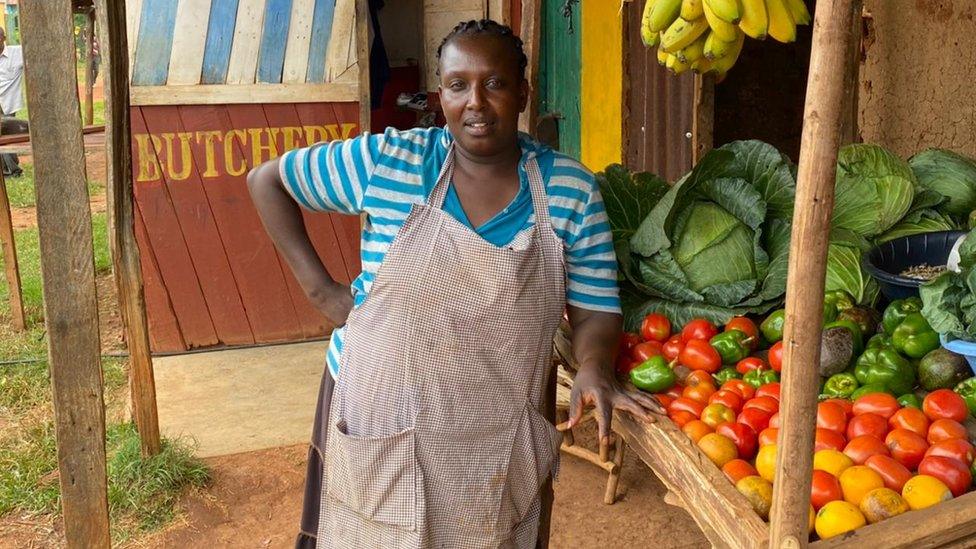
Susan Leguyam wants normal life to resume
"It's been three years or so of campaigns. We've had no business. Right now, no-one is going out , they are just glued to their TVs and radio waiting to hear who will become president. IEBC should just get this over with so we can move on with our lives," she said.
In Mr Odinga's stronghold of Kisumu in western Kenya, security guard Oliver Ochieng said life had "ground to a halt" in the city as people waited for the result.
"We want to know, is it Raila or Ruto, so that we can move on with our lives. We are ready to accept the results," he told the BBC.
Several prominent leaders and organisations have also been calling for patience and urging Kenyans to maintain peace.
Catholic Archbishop Anthony Muheria has said whoever will be declared a winner should "accept victory with respect and humility."
"If aggrieved, receive the disappointment or lack of victory with grace... pursue redress through the judicial process. There are no losers in this process, a successful democratic process is a win for all of us," he said.
"We aim to build a Kenya whose democracy encourages competitive politics. Unsuccessful candidates must not be treated as losers, but as Kenyans who have done their part in expanding the democratic space."
Kenya's presidential vote: What scenarios to expect
Following the 2007 vote, at least 1,200 people were killed and 600,000 fled their homes following claims of a stolen election.
In 2017, huge logistical errors led the Supreme Court to annul the result and order the presidential poll to be re-run.
Officials are under pressure to get things right this time.
The country often comes to a standstill during elections, activities across the country have slowed and schools remain closed until at least Thursday 18 August. In Nairobi's central business district, the usually busy streets are mostly deserted.
Allegations of election rigging are as old as the country. It was part of politics even before multiparty elections were re-introduced in the 1990s, but the push for free and fair elections has never faltered.
After the violence that followed the 2007 election, political parties and activists argued for the use of technology instead of physical registers, which could be easily manipulated, to verify voters.
This year's election is the third time technology has been used but it has yet to deliver an election that has not been challenged in the courts.
When will we know the result?
It's still unclear when the final results will be announced.
If there is a clear leader, celebrations are likely to break out among his supporters - but only the IEBC can make it official.
To win the presidential race in the first round, a candidate needs:
more than half of all the votes cast across the country
at least 25% of the votes cast in a minimum of 24 counties.
Otherwise voting goes to a second round which by law has to happen by 8 September.
President Uhuru Kenyatta is standing down after serving his limit of two terms in office. He has endorsed his long-time rival, Mr Odinga, rather than his deputy, Mr Ruto.
